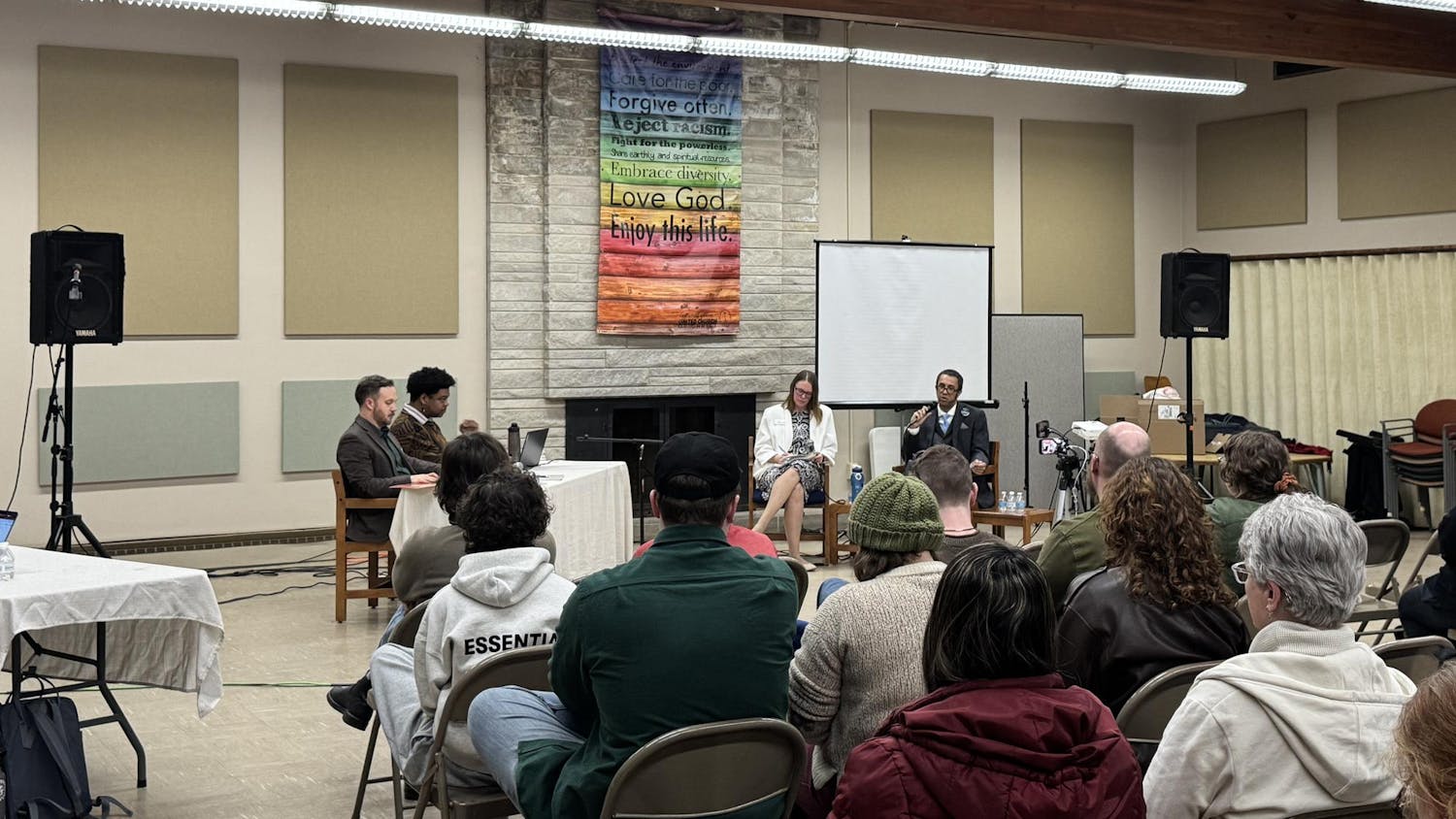On June 8, at the Buskirk-Chumley Theater as part of the annual Granfalloon Festival, science-fiction writer Ted Chiang — in an attempt to defend artificial-intelligence — declared that “fears about technology are fears about capitalism.”
In a way, Chiang is right, but nevertheless he continued to downplay its significance and rapid advancement. In a way, AI is the perfect representation of everything problematic and absurd about our current-day capitalist culture — it’s the ultimate way for the ruling class to save a few bucks. It should come as no surprise then that, according to Forbes, 77% of workers expressed worry that AI’s continued advancement could cause job losses in the next year.
However, I want to be clear that I don’t think AI is inherently bad: I actually feel quite the opposite. The fears regarding AI are deeply rooted in its application in a capitalist society. Were our society not built around a market system, I genuinely believe AI would make our lives significantly easier. Obviously, as it stands, that’s not the case.
Let’s take ChatGPT as an example, since Chiang cited it as one of the reasons we shouldn’t worry about AI’s advancement. The service has become a major point of anxiety among educators, with several school districts across the country already having banned its use. Admittedly, its functions are limited — for the most part, it’s relatively easy to identify an essay written by a bot against a line-up of essays written by people. Its use as a cheating device is overstated, with most students and teachers agreeing it could be used to help facilitate learning.
[Related: OPINION: Hollywood writers deserve so much more]
But what happens if ChatGPT and similar AI programs are introduced beyond the classroom and into the workforce? The Writers Guild of America is already asking the Alliance of Motion Picture and Television Producers to regulate and, in some cases, ban the use of AI as a writer. Essentially, they see the potential of AI as a payday for Hollywood, and they’re getting ahead of the curve and demanding that human writers aren’t replaced.
The idea that the writers of our favorite movies and shows might be replaced by a soulless AI chatbot is grim, but is it really outside the realm of possibility? When has Hollywood ever turned away a cheap gimmick designed to save a few dollars? It definitely wouldn’t be out-of-character to market a movie as the “first motion picture written entirely by ChatGPT,” sell it to Netflix and watch the viewership skyrocket as consumers are curious about the anomaly.
It’s fair to say we may not have to worry about human writers in Hollywood being completely replaced by machines quite yet. The technology is still in its infancy and it’s clear that, as the service exists right now, it couldn’t create entirely new content on its own. The point goes further than that, though. Goldman Sachs has already predicted that up to 300 million jobs could be affected — that is, degraded or even lost — by AI.
Hollywood looking for the first opportunity to replace jobs with ChatGPT is just the tip of the iceberg. If the capitalist class has its way, the average worker is going to feel the effects of AI sooner rather than later.
I believe, however, were our society not built around the capitalist mode of production, AI could make our lives significantly easier. And it’s true: ChatGPT probably couldn’t write the next “Star Wars” film, but, given enough time, it’s completely feasible it could edit its script based on inputted feedback. If writers weren’t trying to earn a wage, this could theoretically help them in their work.
[Related: OPINION: Does AI art harm artists?]
What if AI replaced all our menial jobs? In our current world, that’s a terrifying thought. In a post-capitalism world, we’d be even more free to follow our passions and do what we’d like.
So, yes, I agree that “fears about technology are fears about capitalism.” In our current economic model, we should be doing everything in our power to retain our jobs and deny the ruling class their extra cash. But a better world, where such a thing wouldn’t scare us, is possible.
Joey Sills (he/him) is a junior studying journalism and political science.




